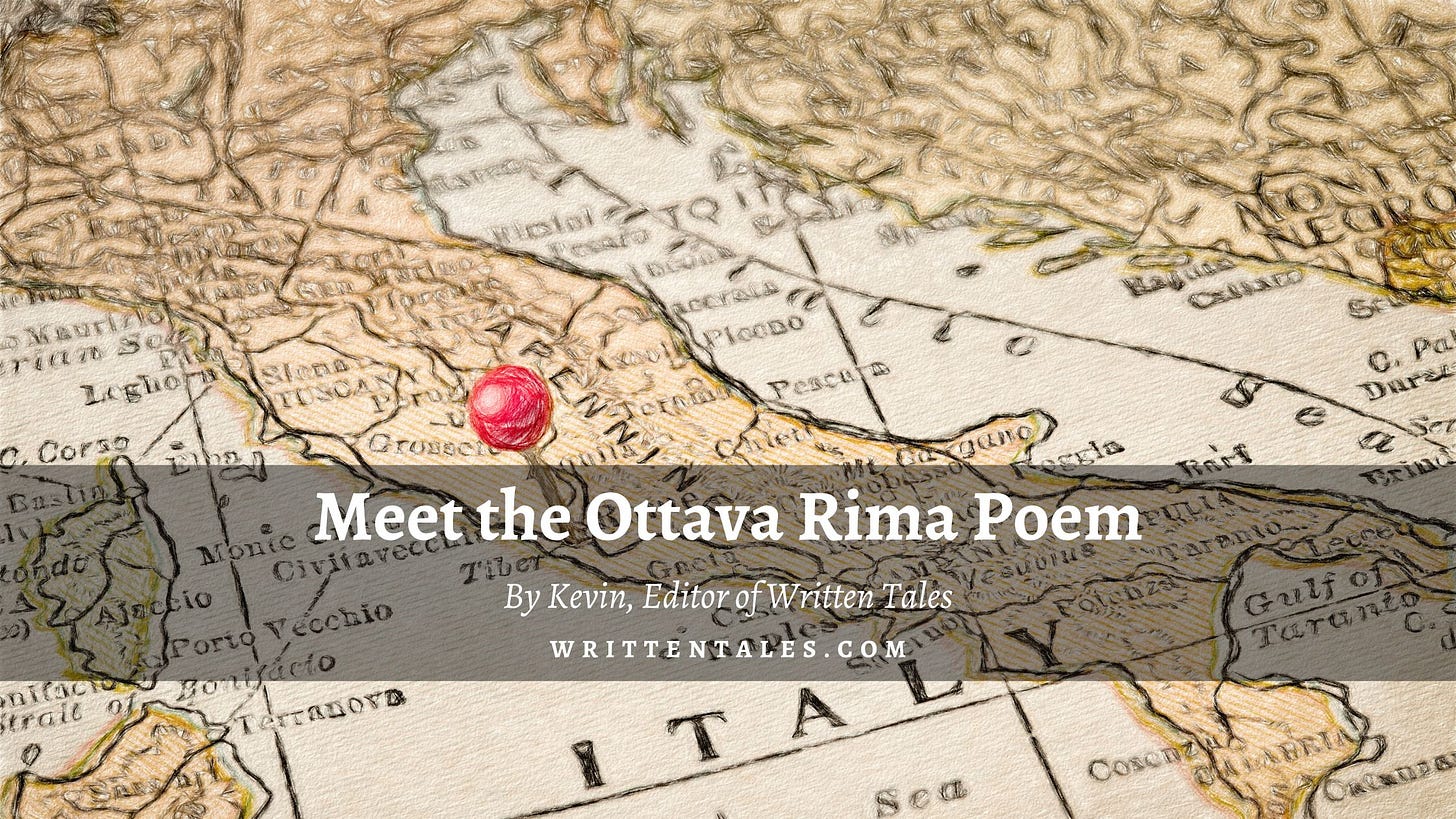Last week’s article introduced the cinquain poem. I hope you had a little fun writing a few of these beautiful gems. To showcase the works created from these series, I added a new feature for our writing member community. Pieces derived from the series will have the opportunity of being featured on our main Written Tales site and this newsletter.
To submit your prose from last week’s cinquain introduction or this article, I've created a simple form to submit your entries.
The Poetic Form
With this said, it's time to meet another poetic form, the Ottava Rima. This poem was created in the late 13th & 14th century. It first appeared throughout Spain and Portugal due to its Italian origin. Later, it found its way to England. Giovanni Boccaccio, a writer, and poet helped establish the form in the 1300s. The themes contained within this form consist of subject matter encompassing religion, heroic epic tales, cultural events, and adventures. Most of the early work I’ve seen surrounded religious topics.
The Ottava Rima consists of an 8-line stanza with 10-11 syllables. Each line must contain the same syllable count. The rhyming pattern for a single stanza poem follows: ABABABCC.
If more than one stanza, the pattern changes:
Two, ABABABCC, DEDEDEFF
Three, ABABABCC, DEDEDEFF, GHGHGHII
And it continues in the same fashion with each additional stanza.
When writing in this form, be careful of the words used for rhyme. Words ending in "ly" make it easier.
Example 1.
A crystal palace sat atop a hill, Secluded from society with trees. A technique the Japanese did instill When men did murder in the third degree; In the moat, non-tame beast waited to kill; In which implied a savage killing spree. And when they were done a clone would become Ungodly excrement of human scum. Heaven forbids if these men were alive, The menagerie would start their next feast. But thanks be to God they did not survive; Rough as their fight may have been, they decreased. They meditate; their souls begin to thrive Round their obelisk where they lay deceased. And even in death where their bodies rest, The beast are seen possessed, from the hill crest. by Kev, two stanza poem.
The pattern in the first rhymes hill, instill and kill on lines 1, 3, 5. Line 2, 4, 6 uses trees, degree, and spree. Line 7 and 8 use become and scum. Each line employs a 10-syllable count.
If you’re up to it, I challenge you to write one and submit your poetic creation. If you accept, use the phrase “Ottava Rima” for the name of the series in the form.
Leave a comment as I enjoy hearing from each of you.
Happy Writing!
Kevin
If you need help with editing your amazing writing, check out Pro Writing Aid. We use and love it. Sign up with our link, and you will receive 20% off and help support the Written Tales. Some links in the article may contain Amazon affiliate links. Sales generated from these links help support our site.




